Our child assessments generally adopt a three step process:
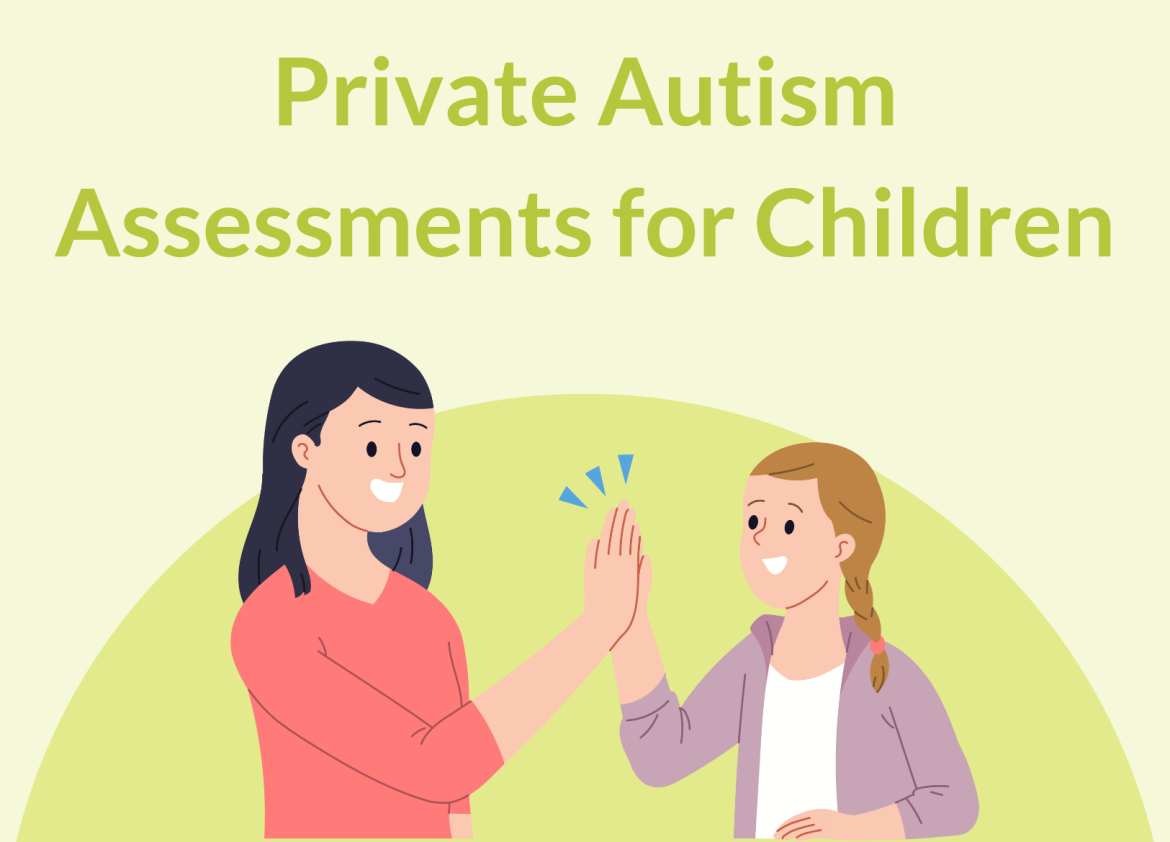
We follow the NICE (National Institute of Clinical and Care Excellence) guidelines for the assessment and diagnosis of Autism. This means that we always assess individuals by using at least two professionals from different disciplines.
Unlike most other providers, we don’t just offer a ‘one price fits all’ approach, as we are fully aware that each autistic child may have additional personal needs and support requirements which may be different to other autistic children. To this end we have developed a variety of assessment packages, which you can directly access and review via the link to our prices at the end of this page.
- Initial FREE Autism screen
- Optional one-hour Consultation – This optional online consultation is carried out without the child being present, allowing the parent(s) to speak openly.
- Formal Assessment
Initial FREE Screening
What makes our screening different?
Autism is on a spectrum, so it is misleading to think all autistic children will present in the same way. If we see very few, or indeed no signs of possible autism, we will inform you. Our screening and consultation process is to help you avoid paying for an assessment if a diagnosis is ultimately highly unlikely.
Optional one-hour Consultation
Ethically it is very important to us that families avoid spending money on assessments if it is highly unlikely that their child will receive a formal diagnosis. Therefore if we feel after the initial screen, and consultation, that a diagnosis of autism is very unlikely, we would advise accordingly. If after the screen and initial consultation we feel an assessment is appropriate, then if the parent books a formal assessment with us, we provide a discount on the assessment price, which equates to 50% of the cost of the initial one-hour consultation.
Formal Assessment
Further details of all the elements of our assessments, and the various assessment tools we use, can be found on our pricing page. (See link below)
Autistic Masking
Throughout our website, we have a number of blog articles and help guides on the subject. If you have a concern that your child masks, then please start by reading our blog article; Diagnostic concerns and revisions to the DSM 5 , which explains one of the key reasons why so many clinical teams end up not giving a diagnosis when a child is clearly autistic.
Diagnostic Reports
In addition to taking a Developmental History, and carrying out an ADOS (we use specific aged related versions), all our Autism Assessments also include a sensory screen, which provides a complete picture of sensory integration and processing difficulties in multiple environments, offering intervention strategies to help with sensory integration and processing challenges. Additionally, our Autism Assessments also include a Social Responsiveness Screen, which identifies the presence and severity of social impairment within the autism spectrum and differentiates it from that which occurs in other disorders. This particular screen also makes it easy to compare your child’s presentation to DSM-5 diagnostic criteria for autism. Such comparisons clearly inform diagnosis and further helps us to determine whether your child meets the most current diagnostic criteria for autism.
These screens, and the other elements of the assessments, then allow us to produce a comprehensive picture of your child and any difficulties this might lead to. All our reports come with detailed recommendations for school and home in terms of supporting and managing any areas of concern.
Should any parent find our reports are not accepted locally, then we are happy to discuss the matter with the local NHS team or local authority, on their behalf.
Assessment Options
Preparing your child for an Assessment
In addition to all the images on this website for them to see, we provide a brochure for children being assessed, titled ‘My visit’. These will be sent out ahead of their visit, and the brochure explains what the assessment entails, and will include photos of the rooms we use for assessments. We have produced a separate brochure for under 11s and over 11s, and different brochures for our clinics in Norwich and Henley-in-Arden. Many parents have told us that these brochures have been of extreme benefit when attending our clinics with their children.
Start your FREE screen right now!
OUR TEAM OF PROFESSIONAL AND HIGHLY EXPERIENCED CLINICIANS ARE HERE TO ASSIST YOU
Reasons to book a private Autism Assessment with Help for Psychology
So why choose a private assessment?
- Your child will be seen more quickly. We can usually offer an appointment within a maximum of three months (sometimes much sooner). We are strong believers in early diagnosis, support and understanding. A ‘‘Stitch in Time’’ is a key message we aim to promote.
- Gaining access to a comprehensive, NICE compliant assessment, which provides the option of tailoring certain aspects of your child’s assessment to meet their specific needs (for example – Educational or Mental Health). All our clinicians have extensive experience of working in diagnostic services.
- You will receive comprehensive feedback about your child’s assessment and a detailed report (with recommendations) that is specifically tailored to your child’s needs.
- Our experienced clinicians can also consider other co-occurring conditions such as ADHD, Anxiety, Depression, and we can refer onwards within our extensive team should you wish to discuss mental health issues or medication further. We can also offer a range of therapeutic interventions after a diagnosis.
- Our reports can be used to support an EHCP application. We have frequently received praise for the depth and comprehensiveness of the information contained in our reports, and our helpful suggestions for support.
- We have a choice of two clinics where we can offer flexible appointment slots to accommodate travel time to and from the clinic and to help manage any anxiety your child might feel about attending an assessment. We have the time to create a welcoming and low-arousal environment.
- Many people have concerns that a private diagnosis won’t be accepted by either the NHS or the Local Authority. As a recognised provider of services to the NHS in certain parts of the country and various Local Authorities across the country, we are very confident that our assessment reports will be fully accepted.
Recommended Reading
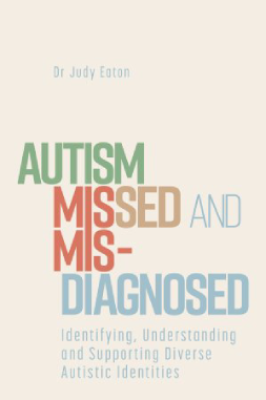
Autism presents in a multitude of different and highly nuanced ways – particularly as it intersects with variance in class, gender, race and age.
Misunderstanding and misinformation around variant and differing presentations means that misdiagnosed individuals and those who do not receive a diagnosis at all are often failed by medical, education, social care and criminal justice systems. They are detained in inappropriate settings; don’t receive beneficial therapeutic input; have their families accused of fabricated or induced illness (FII); are kept in prison or youth offending institutions longer than their original tariffs, and shockingly their life expectancy is often curtailed as a result.
This comprehensive resource will help multidisciplinary professions to understand, contextualise, and better identify diverse autistic presentations. It includes an overview of the autism diagnostic process, an exploration of controversial and commonly confused diagnoses such as PDA, ODD, CD, ASPD, and BPD; discussions of best practice for investigating FII; and analysis of the specific challenges of autism diagnosis in relation to women and girls, BAME communities, schools, and the criminal justice system.
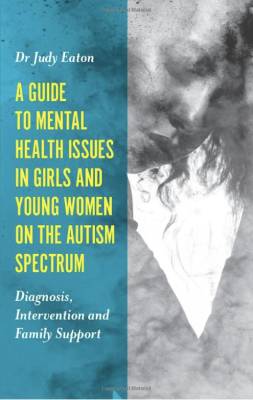
A Guide to Mental Health Issues in Girls and Young Women on the Autism Spectrum: Diagnosis, Intervention and Family Support
This book addresses the specific mental health needs of girls and young women with autism spectrum disorder (ASD). Looking at the ways autism presents differently in girls than in boys, and the mental health conditions that occur most frequently in girls with ASD, this is the essential guide for clinicians and educators on tailoring interventions and support to meet girls' needs.
Describing the current assessment process for autism diagnosis, the book explains why girls are under-
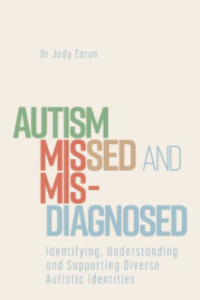
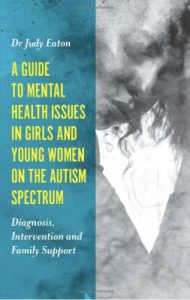
A Guide to Mental Health Issues in Girls and Young Women on the Autism Spectrum: Diagnosis, Intervention and Family Support
This book addresses the specific mental health needs of girls and young women with autism spectrum disorder (ASD). Looking at the ways autism presents differently in girls than in boys, and the mental health conditions that occur most frequently in girls with ASD, this is the essential guide for clinicians and educators on tailoring interventions and support to meet girls' needs.
Describing the current assessment process for autism diagnosis, the book explains why girls are under-



